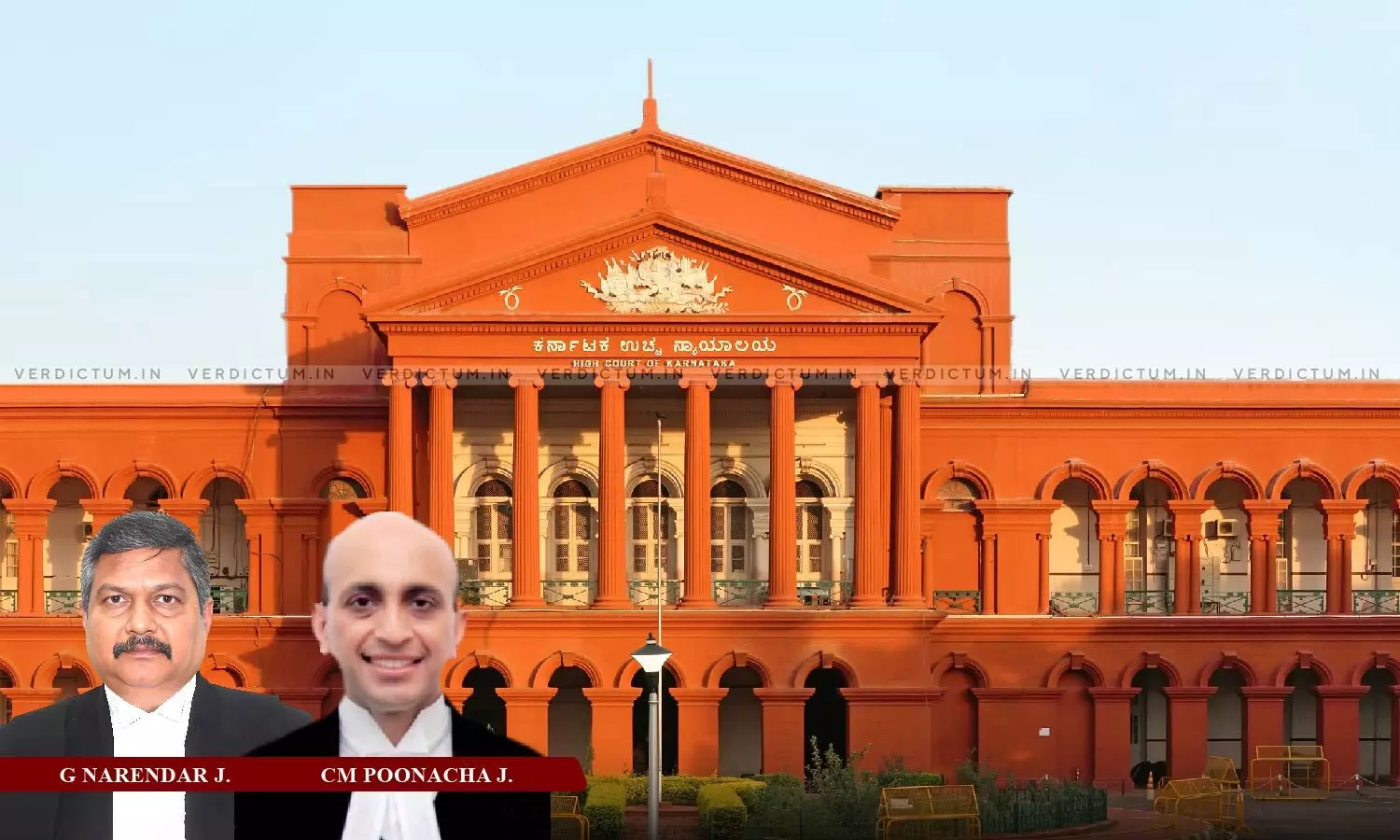
Inordinate Delay In Deciding Mercy Petition: Karnataka HC Commutes Death Sentence Of 70-Year-Old Death Row Convict After 30 Years In Jail
 |
|A Karnataka High Court Bench of Justice G Narendar and Justice CM Poonacha has remitted the death penalty imposed on a 70-year-old murder convict and commuted it to life imprisonment. Notably, the convict spent 30 years in jail. The Court held that there was an inordinate delay on deciding the mercy petition.
Counsel Ragini Ahuja, Counsel Urmila Pullat, and Counsel BN Jagadeesha appeared for the petitioner. CGC H Jayakara Shetty, AAG Vikram Huilgol and HCGP Kiran Kumar appeared for the respondents.
In 1988, the petitioner turned himself in to the police, admitting to killing his wife Malkawwa due to her alleged affair, which had deeply disturbed him. He was arrested, sent to judicial custody, and met Dattu (PW-1) during his time there. After his release on bail, he married Nagamma, Dattu's daughter, and they had a child. In 1993, the petitioner was convicted and sentenced to life imprisonment for his wife's murder. In 1994, Nagamma and their daughter were found murdered, and the petitioner was seriously injured. He was convicted under Section 303 IPC, despite it being struck down earlier. He was sentenced to death, and his appeals were rejected by various Courts. Mercy petitions were submitted, facing delays and rejections.
The counsel for the petitioner argued that an unexplained 7-year delay occurred in considering the petitioner's mercy petition. It was also mentioned that the petitioner was subjected to illegal solitary confinement after his sentencing.
Amicus Curiae Senior Advocate Vikram Huilgol also stated that solitary confinement created a basis for the convict to appeal for commutation of the death sentence. He also asserted that a prolonged delay in reviewing the mercy petition should be deemed fatal.
On hearing the parties and perusing the evidence, the Court observed that the schedule of events clearly demonstrated a clear lapse on the part of the State Government and the Union Government. In that context, it was said that, "A cumulative reading would clearly demonstrate that there has been a delay in consideration of the mercy petition on the part of the Governor and the delay occasioned is more than one year 11 months and the delay occasioned in the consideration of the mercy petition by the Hon’ble President is more than 5 years and 9 and half months. In totality, the cumulative delay in considering and disposing of petitioner’s mercy petition is more than 7 years and eight months."
Subsequently, the Court held that the delay in consideration of the mercy petition was an inordinate and unexplained delay and the same inhered a right in the petitioner to seek commutation of the death sentence. In that regard, reliance was placed on a catena of Supreme Court judgments, including Ajay Kumar Pal vs. Union of India and Another, to observe that the facts and circumstances of the present case clearly pointed to an inordinate delay.
It was also noted that the report submitted unequivocally demonstrated that the petitioner was made to suffer in a singular cell confinement/solitary confinement without the sanction of law. The Court made note of the health ailments caused to the petitioner owing to the confinement.
In light of the same, it was said that "In view of our above discussion and taking into consideration the entirety of facts and circumstances and in view of the fact that the petitioner has undergone imprisonment for more than 30 long years, in our view, ends of justice would be met if the death sentence awarded to the petitioner is commuted to one of Life imprisonment, with liberty to move an application for remission."
Cause Title: Saibanna v. The Union of India & Ors.
Click here to read/download that Judgment